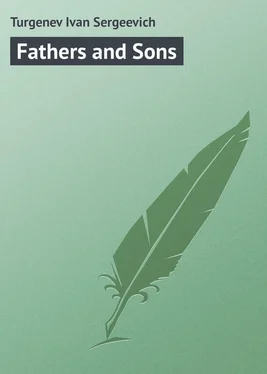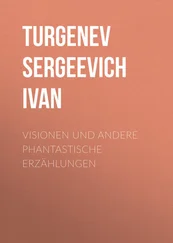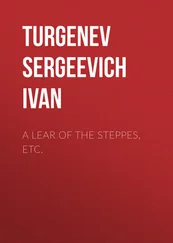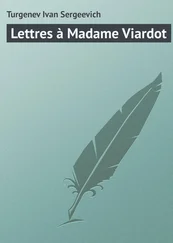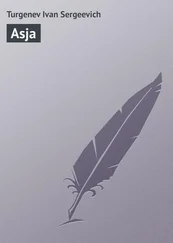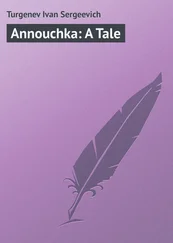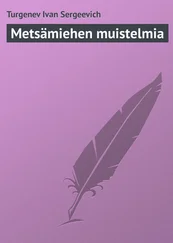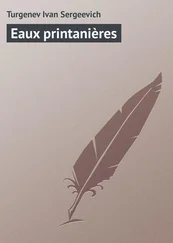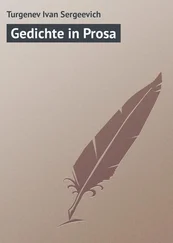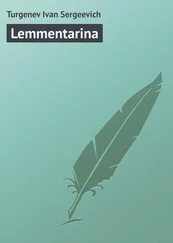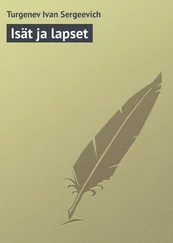Turgenev Ivan - Fathers and Sons
Здесь есть возможность читать онлайн «Turgenev Ivan - Fathers and Sons» — ознакомительный отрывок электронной книги совершенно бесплатно, а после прочтения отрывка купить полную версию. В некоторых случаях можно слушать аудио, скачать через торрент в формате fb2 и присутствует краткое содержание. ISBN: , Жанр: foreign_prose, на английском языке. Описание произведения, (предисловие) а так же отзывы посетителей доступны на портале библиотеки ЛибКат.
- Название:Fathers and Sons
- Автор:
- Жанр:
- Год:неизвестен
- ISBN:http://www.gutenberg.org/ebooks/47935
- Рейтинг книги:3 / 5. Голосов: 1
-
Избранное:Добавить в избранное
- Отзывы:
-
Ваша оценка:
- 60
- 1
- 2
- 3
- 4
- 5
Fathers and Sons: краткое содержание, описание и аннотация
Предлагаем к чтению аннотацию, описание, краткое содержание или предисловие (зависит от того, что написал сам автор книги «Fathers and Sons»). Если вы не нашли необходимую информацию о книге — напишите в комментариях, мы постараемся отыскать её.
Fathers and Sons — читать онлайн ознакомительный отрывок
Ниже представлен текст книги, разбитый по страницам. Система сохранения места последней прочитанной страницы, позволяет с удобством читать онлайн бесплатно книгу «Fathers and Sons», без необходимости каждый раз заново искать на чём Вы остановились. Поставьте закладку, и сможете в любой момент перейти на страницу, на которой закончили чтение.
Интервал:
Закладка:
3 3 Civil servant.That done, the father returned to his division and his wife, and only at rare intervals sent his sons sheets of grey foolscap (scrawled and re-scrawled in flamboyant calligraphy) to which there was appended, amid a bower of laborious flourishes, the signature "Piotr Kirsanov, Major-General." In the year 1835 Nikolai Petrovitch obtained his university degree; and in the same year General Kirsanov was retired for incompetence at a review, and decided to transfer his quarters to St. Petersburg. Unfortunately, just as he was on the point both of renting a house near the Tavritchesky Gardens and of being enrolled as a member of the English Club, a stroke put an end to his career, and Agathoklea Kuzminishna followed him soon afterwards, since never had she succeeded in taking to the dull life of the capital, but always had hankered after the old provincial existence. Already during his parents' lifetime, and to their no small vexation, Nikolai Petrovitch had contrived to fall in love with the daughter of a certain tchinovnik named Prepolovensky, the landlord of his flat; and since the maiden was not only comely, but one of the type known as "advanced" (that is to say, she perused an occasional "Science" article in one newspaper or another), he married her out of hand as soon as the term of mourning was ended, and, abandoning the Ministry of Provincial Affairs to which, through his father's influence, he had been posted, embarked upon connubial felicity in a villa adjoining the Institute of Forestry. Thence, after a while, the couple removed to a diminutive, but in every way respectable, flat which could boast of a spotless vestibule and an icy-cold drawing-room; and thence, again, they migrated to the country, where they settled for good, and where, in due time, they had born to them a son Arkady. The existence of husband and wife was one of perfect comfort and tranquillity. Almost never were they parted from one another, they read together, they played the piano together, and they sang duets. Also, she would garden or superintend the poultry-yard, and he would set forth a-hunting, or see to the management of the estate. Meanwhile Arkady led an existence of equal calm and comfort, and grew, and waxed fat; until, in 1847, when ten years had been passed in this idyllic fashion, Kirsanov's wife breathed her last. The blow proved almost more than the husband could bear – so much so that his head turned grey in a few weeks. Yet, though he sought distraction for his thoughts by going abroad, he felt constrained, in the following year, to return home, where, after a prolonged period of inaction, he took up the subject of Industrial Reform. Next, in 1855, he sent his son to the University of St. Petersburg, and, for the same reason, spent the following three winters in the capital, where he seldom went out, but spent the greater part of his time in endeavouring to fraternise with his son's youthful acquaintances. The fourth winter, however, he was prevented by various circumstances from spending in St. Petersburg; and thus in the May of 1859 we see him – grey-headed, dusty, a trifle bent, and wholly middle-aged – awaiting his son's home-coming after the elevation of the latter (in Nikolai's own footsteps) to the dignity of a graduate.
Presently either a sense of decency or (more probably) a certain disinclination to remain immediately under his master's eye led the servant to withdraw to the entrance gates, and there to light a pipe. Nikolai Petrovitch, however, continued sitting with head bent, and his eyes contemplating the ancient steps of the verandah, up which a stout speckled hen was tap-tapping its way on a pair of splayed yellow legs, and thereby causing an untidy, but fastidious-looking, cat to regard it from the balustrade with marked disapproval. Meanwhile the sun beat fiercely down, and from the darkened interior of a neighbouring granary came a smell as of hot rye straw. Nikolai Petrovitch sank into a reverie. "My son Arkady a graduate!" – the words kept passing and repassing through his mind. Again and again he tried to think of something else, but always the same thought returned to him. Until eventually he reverted to the memory of his dead wife. "Would that she were still with me!" was his yearning reflection. Presently a fat blue pigeon alighted upon the roadway, and fell to taking a hasty drink from a pool beside the well. And almost at the instant that the spectacle of the bird caught Nikolai Petrovitch's eye, his ear caught the sound of approaching wheels.
"They are coming, I think," hazarded the servant as he stepped forward through the gates.
Nikolai Petrovitch sprang to his feet, and strained his eyes along the road. Yes, coming into view there was a tarantass , 4 4 A species of four-wheeled carriage.
drawn by three stagehorses; and in the tarantass there could be seen the band of a student's cap and the outlines of a familiar, well-beloved face.
"Arkasha, Arkasha!" was Kirsanov's cry as, running forward, he waved his arms. A few moments later he was pressing his lips to the sun-tanned, dusty, hairless cheek of the newly-fledged graduate.
II
"Yes, but first give me a rub down, dearest Papa," said Arkady in a voice which, though a little hoarsened with travelling, was yet clear and youthful. "See! I am covering you with dust!" he added as joyously he returned his father's caresses.
"Oh, but that will not matter," said Nikolai Petrovitch with a loving, reassuring smile as he gave the collar of his son's blue cloak a couple of pats, and then did the same by his own jacket. Thereafter, gently withdrawing from his son's embrace, and beginning to lead the way towards the inn yard, he added: "Come this way, come this way. The horses will soon be ready."
His excitement seemed even to outdo his son's, so much did he stammer and stutter, and, at times, find himself at a loss for a word. Arkady stopped him.
Читать дальшеИнтервал:
Закладка:
Похожие книги на «Fathers and Sons»
Представляем Вашему вниманию похожие книги на «Fathers and Sons» списком для выбора. Мы отобрали схожую по названию и смыслу литературу в надежде предоставить читателям больше вариантов отыскать новые, интересные, ещё непрочитанные произведения.
Обсуждение, отзывы о книге «Fathers and Sons» и просто собственные мнения читателей. Оставьте ваши комментарии, напишите, что Вы думаете о произведении, его смысле или главных героях. Укажите что конкретно понравилось, а что нет, и почему Вы так считаете.
